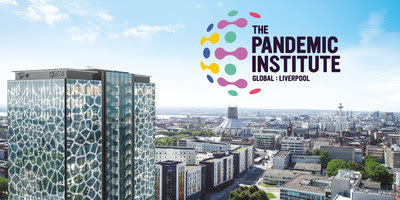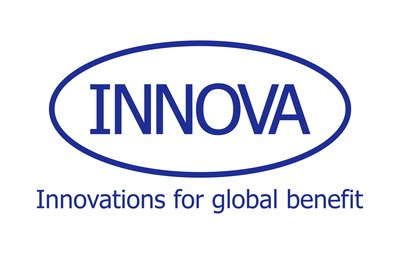New data reveals world stepped up to prevent worst-case scenarios from happening; spotlights need for long-term investments to ensure an equitable recovery and continued progress toward the Global Goals
SEATTLE, Sept. 14, 2021 /PRNewswire/ — The Bill & Melinda Gates Foundation today launched its fifth annual Goalkeepers Report, featuring an updated global dataset illustrating the pandemic’s adverse impact on progress toward the United Nations Sustainable Development Goals (Global Goals).
This year’s report, co-authored by Bill Gates and Melinda French Gates, co-chairs of the Bill & Melinda Gates Foundation, shows that disparities caused by COVID-19 remain stark, and those who have been hardest hit by the pandemic will be the slowest to recover. Because of COVID-19, an additional 31 million people were pushed into extreme poverty in 2020 compared to 2019. And while 90% of advanced economies will regain pre-pandemic per capita income levels by next year, only a third of low- and middle-income economies are expected to do so.
Fortunately, amidst this devastation, the world stepped up to avert some of the worst-case scenarios. In last year’s Goalkeepers Report, the Institute for Health Metrics and Evaluation (IHME) predicted a drop of 14 percentage points in global vaccine coverage—effectively erasing 25 years of progress in 25 weeks. New analysis from IHME demonstrates that the decline, while still unacceptable, was only half of what was anticipated.
In the report, the co-chairs highlight the “breathtaking innovation” that was only possible because of global collaboration, commitment, and investments over decades. They acknowledge that averting the worst-case scenarios is commendable, yet they note it’s not enough. To ensure a truly equitable recovery from the pandemic, they call for long-term investments in health and economies—like the ones that led to the rapid development of the COVID-19 vaccine—to propel recovery efforts and get the world back on track to meet the Global Goals.
“[The past year] has reinforced our belief that progress is possible but not inevitable,” write the co-chairs. “If we can expand upon the best of what we’ve seen these past 18 months, we can finally put the pandemic behind us and once again accelerate progress in addressing fundamental issues like health, hunger, and climate change.”
The report highlights the disproportionate economic impact that the pandemic has had on women globally. In high- and low-income countries alike, women have been harder hit than men by the global recession that was triggered by the pandemic.
“Women face structural barriers in every corner of the world, leaving them more vulnerable to the impacts of the pandemic,” said Melinda French Gates. “By investing in women now and addressing these inequities, governments can spur a more equitable recovery while strengthening their economies against future crises. It’s not just the right thing to do—but smart policy that will benefit everyone.”
The report also illustrates how the so-called “miracle” of COVID-19 vaccines was the result of decades of investment, policies, and partnerships that established the infrastructure, talent, and ecosystems necessary to deploy them quickly. However, the systems that allowed for the unprecedented development and deployment of the COVID-19 vaccine exist primarily in wealthy countries, and as a result, the world has not benefited equally.
“The lack of equitable access to COVID-19 vaccines is a public health tragedy,” said Bill Gates. “We face the very real risk that in the future, wealthy countries and communities will begin treating COVID-19 as yet another disease of poverty. We can’t put the pandemic behind us until everyone, regardless of where they live, has access to vaccines.”
More than 80% of all COVID-19 vaccines have been administered in high- and upper-middle-income countries to date, with some securing two to three times the number needed so they can cover boosters; less than 1% of doses have been administered in low-income countries. Further, COVID-19 vaccine access has been strongly correlated with the locations where there is vaccine R&D and manufacturing capability. Though Africa is home to 17% of the world’s population, for example, it has less than 1% of the world’s vaccine manufacturing capabilities.
Ultimately, the report calls for the world to invest in R&D, infrastructure, and innovation in places closer to the people who stand to benefit.
“We must invest in local partners to strengthen the capacity of researchers and manufacturers in lower-income countries to create the vaccines and medicines they need,” said Gates Foundation CEO Mark Suzman. “The only way we will solve our greatest health challenges is by drawing on the innovation and talent of people all over the world.”
About the Bill & Melinda Gates Foundation
Guided by the belief that every life has equal value, the Bill & Melinda Gates Foundation works to help all people lead healthy, productive lives. In developing countries, it focuses on improving people’s health and giving them the chance to lift themselves out of hunger and extreme poverty. In the United States, it seeks to ensure that all people—especially those with the fewest resources—have access to the opportunities they need to succeed in school and life. Based in Seattle, Washington, the foundation is led by CEO Mark Suzman, under the direction of Bill Gates and Melinda French Gates.
About Goalkeepers
Goalkeepers is the foundation’s campaign to accelerate progress towards the Sustainable Development Goals (Global Goals). By sharing stories and data behind the Global Goals through an annual report, we hope to inspire a new generation of leaders—Goalkeepers who raise awareness of progress, hold their leaders accountable, and drive action to achieve the Global Goals.
About the Global Goals
On September 25, 2015, at the United Nations headquarters in New York, 193 world leaders committed to the 17 Sustainable Development Goals (Global Goals). These are a series of ambitious objectives and targets to achieve three extraordinary things by 2030: end poverty, fight inequality and injustice, and fix climate change.
Media Contact: media@gatesfoundation.org
Report Link: https://www.gatesfoundation.
Report Visual Assets:http://gatesfoundation.


